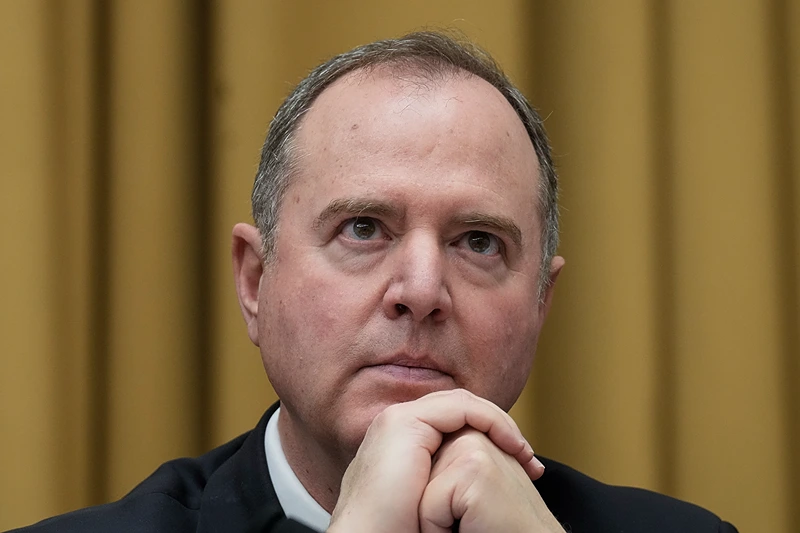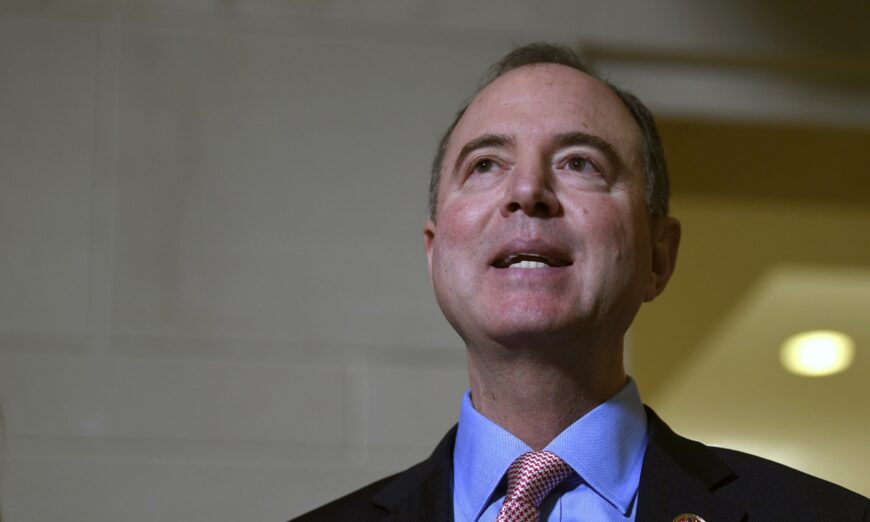Rep. Mike Flood Calls for Answers on SVB Bank Collapse Before Jumping to New Regulations
Representative Mike Flood (R. Neb.) Rep. Mike Flood (R-Neb.) is resisting calls for new regulations following the sudden collapse at Silicon Valley Bank (SVB). He said that lawmakers need to first understand the causes of the bank’s collapse.
“We have to find out what was happening in Silicon Valley Bank; we need to find out what the regulators were doing,” Flood spoke with NTD News on Tuesday March 14.
Monday’s White House address by President Joe Biden emphasized that the American banking system remains safe. SVB depositors could be reimbursed through the Deposit Insurance Fund, managed by Federal Deposit Insurance Corporation (FDIC). Biden then urged Congress and banking regulators for stronger regulation of financial institutions and banks.
Flood stated that the urgent call for new rules regarding banks could be made “another round of regulation for regulation’s sake” He called for Congress’s better understanding of why SVB failed, before any action is taken.
Flood pointed out that SVB has experienced a significant financial growth in recent years. Macrotrends data shows that the bank’s value was $51 billion at its beginning in 2018, and it grew to $220 million by March 2022. Flood stated that SVB’s “meteoric rise” This led him to question the actions of regulators before the bank’s collapse.
“Let’s find out who didn’t do their job and why this bank was growing so fast, and what was contributing to it before we start to put the thumb down of the federal government on all the folks that are just trying to earn a living and relying on banks that are financially and fiscally sound,” Flood,
Trump De-Regulations: Biden Blames SVB Collapse for Biden
Biden stated Monday in White House remarks that President Donald Trump was to blame for SVB’s failure because he and Republicans supported deregulation.
“During the Obama-Biden administration, we put in place tough requirements on banks like Silicon Valley Bank and Signature Bank, including the Dodd-Frank Law, to make sure the crisis we saw in 2008 would not happen again,” Biden stated Monday. “Unfortunately, the last administration rolled back some of these requirements.”
In 2018, Trump signed the Economic Growth, Regulatory Relief, and Consumer Protection Act into law. This act effectively curtailed certain components of the 2010 Dodd-Frank act (including the regulations on banks of small and medium size).
Dodd-Frank defines systemically important financial institution (SIFI) as any bank with at least $50 billion in assets. These banks are also colloquially known as “too big to fail.” These were created out of concern that the failure to establish a SIFI could cause economic damage across the board. “too big to fail” Banks were subject to increased supervision and regulatory standards. Trump-era changes in regulations changed what the threshold was for SIFIs to be from $50 billion to $250 billion. But it was left up to FRB discretion to determine which enhanced standards would apply to banks with assets of $100 billion or more.
Some economists disagree with Trump’s part of the blame.
Thomas Hogan, a senior fellow with the American Institute for Economic Research and former chief economist for U.S. Senate Committee on Banking, Housing, and Urban Affairs, stated to Epoch Times that banks are more likely to fail because of rising compliance costs. Hogan wrote in a 2021 research that banks were more likely than ever to default on their financial investments due to risk-based capital (RBC).
Peter Schiff, chief economist and strategist at Euro Pacific Capital, also claimed that government banking regulations incentivize financial institutions to buy long-term Treasurys or mortgage-backed securities.
“The government blames #SVB’s failure on management’s foolish decision to load up on long-term U.S. Treasurys and MBS [mortgage-backed securities]. But government banking regulations encouraged those purchases with favorable accounting terms; no haircuts or mark-to-market, despite high-interest rate risk,” Schiff tweeted Monday “All the #banks that were dumb enough to buy long-term Treasurys and MBS when yields were at record lows have now been bailed out by the #Fed. What about pension funds, insurance companies, and private investors who made the same mistake? Why don’t they get bailed out?”
A Bank Not Like the Others
SVB was established in 1983. They advertised their services to businesses.
“This by no means is a community bank,” Flood spoke highly of SVB
“There’s a big difference between a bank like this, and the banks that we use every single day across the United States, the banks that I rely on here in Nebraska, that we know are safe,” Flood added.
Flood pointed out that SVB has seen a dramatic increase in assets’ total value in recent years. Flood also noted that around 90 percent had made deposits over $250,000.
For each account type, the FDIC covers $250,000 in standard deposits at insured banks.
FDIC will assess its member banks and levy a special assessment to replenish SVB depositors. This evaluation is a special insurance premium that the banks pay to cover future bank failures.
“Do we now send the message that every single bank that has a failure, we’re not going to set ourselves at $250,000? We’re gonna go up to make people absolutely whole?” Flood asked. “People have to understand that there’s a limit of [$250,000] for a reason.”
NTD News
…..
“Continue reading More from” Rep. Mike Flood Needs Answers to the SVB Bank Collapse before Jumping to New Regulations“
“The views and opinions expressed here are solely those of the author of the article and not necessarily shared or endorsed by Conservative News Daily”
" Conservative News Daily does not always share or support the views and opinions expressed here; they are just those of the writer."





